People
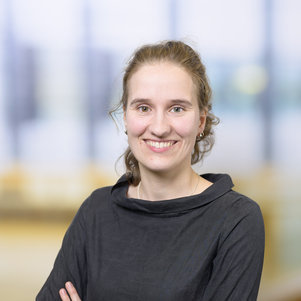
Dr. Ir. Rinke van Tatenhove-Pel
Assistant Professor
- +31 15 27 82456
- R.J.vanTatenhove-Pel@tudelft.nl
-
Room number: B58.B1.140
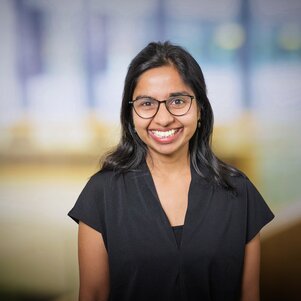
Sagarika Bangalore Govindaraju
PhD candidate
- S.BangaloreGovindaraju@tudelft.nl
-
Room number: B58.C0.060
-
After my Bachelor’s in Biotechnology from Bangalore, India and my Master’s in Life Science and Technology at TU Delft, I developed a fascination for solving pertinent global challenges using microbes.
In my PhD project, I am working on developing a high-throughput screening and selection platform. The platform is based on a robust and powerful microdroplet based cultivation system, which allows us to culture millions of microbes in parallel.
Using this platform, we want to understand how different environments influence the fitness of microbial consortia. Microbes in nature commonly interact with each other, but most biotechnological processes are based on monocultures. We want to use our platform to decipher how and why microbes interact under different conditions. Using this knowledge, we want to develop methods to select for microbial consortia with interesting properties for industrial applications.
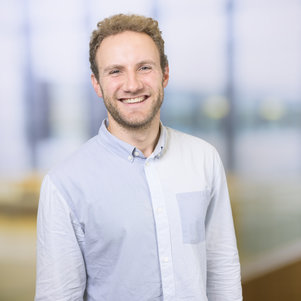
-
I grew up in Germany and graduated in 2015 from the University of Münster in Biology. Not being sure what I wanted to do with my degree, I moved to Chile to work on Protein molecular dynamics at the PUC Chile for two years. Back in Europe, I started a Masters in Genetics at the University of Leiden and graduated in 2020. After a short period working in Leiden as a technician for commercial vaccine research I started my PhD in April 2022 at the Industrial Microbiology group, hoping to finally satisfy my ‘pleasure of finding things out’ as an independent researcher.
In my project, I am looking for new ways to screen yeast cells for improved metabolism. Together with Rinke, I’m looking at easy-to-produce droplet emulsions in which cells can be cultured with a defined amount of substrate. These pico-liter sized reactors can then be screened with high-throughput technologies, like FACS, to obtain improved organisms that can for example grow better on low-emission substrates like ethanol. Another part of my project focusses on engineering microbial communities, allowing them to co-feed on dynamic feed-streams. This will help to adapt to reactors with mixed substrates, such as lignocellulose.
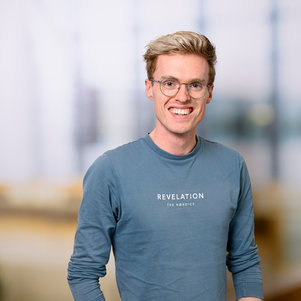
-
After completing my Bachelor's degree in Life Sciences at Avans University of Applied Sciences in Breda, I pursued a Master’s in Molecular and Cellular Life Sciences at Utrecht University. In the final year of my Master’s, I conducted research on fungal biology at the TU Berlin. It was during this time that I became certain this was the field I wanted to stay in.
In my PhD research, I am focused on improving the efficiency of Ogataea parapolymorpha through laboratory evolution. This approach not only helps us improve this yeast but also strengthens our understanding of yeast energy metabolism in general, a fundamental aspect of biology that is still not completely understood.
By advancing our knowledge of energy metabolism, my goal is to develop strains with enhanced biomass yield. Since this biomass is primarily protein, it has promising potential to help address global protein deficiency. My research leverages evolution as a tool to optimise microbial strains for industrial applications, while uncovering the key molecular components involved in energy metabolism.
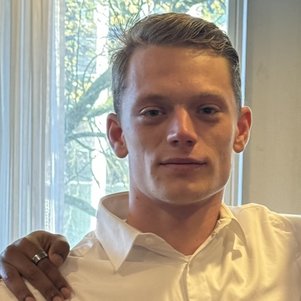
-
As a child, I was captivated by the animated series Dexter's Laboratory and scientific breakthroughs I witnessed on the news while watching with my grandmother. This early exposure to science sparked my curiosity and led me to pursue scientific studies after high school. I earned a degree in Laboratory Sciences from the Leiden University of Applied Sciences and subsequently completed a Master’s degree in Biomolecular Sciences at VU University in Amsterdam. During my graduate studies, I developed a technique to visualize and localize mRNA within three-dimensional, untransparent fungal networks. This experience revealed my passion for innovation—specifically, the thrill of creating novel techniques and immediately applying them to make new discoveries. This realization fuelled my desire to continue in research, ideally through a PhD program with similar objectives.
During my PhD research, I am developing novel methodologies to evolve microbial consortia, an approach historically applied to single microorganisms. Upon successful completion, these methods can be used to enhance microbial consortia for various applications, including food fermentations, biofuel production, and the breakdown of complex substrates as a carbon source. Compared to the use of individual microorganisms, microbial consortia offer increased efficiency and reduced emissions in fermentation processes, contributing to a more sustainable world—a goal whose importance is universally recognized.
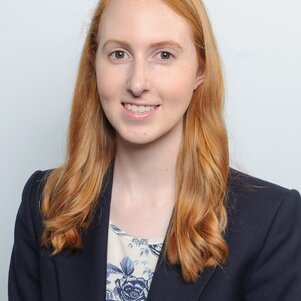
-
I’m from Cape Town, South Africa, and I started my studies at Stellenbosch University with a BSc in Molecular Biology and Biotechnology (2016 - 2018). I continued with a BScHons in Microbiology (2019), followed by a MSc degree (2020) at the same institution. However, my Master’s project got upgraded to a PhD in August 2021 and I then graduated my PhD in Microbiology in March 2024. My PhD project involved the production of alternative antimicrobials, such as antimicrobial peptides, in yeast. Antimicrobial peptides serve as alternative antimicrobials to combat antibiotic resistance, and producing the peptides in yeast allows for simplified purification and high yields at a lower cost. I also investigated the application of the bactericidal yeast strains in raw starch-to-ethanol fermentations to reduce bacterial contamination.
I started my Postdoc at TU Delft in September 2024 in the section Industrial Microbiology. My Postdoc project involves the selection of efficient hemicellulose-oligomer utilizing strains from an existing lignocellulosic microbiome using microdroplets as a high throughput screening and selection platform. These strains can then be used together with a defined consortium of cellulolytic and hemicellulolytic organisms for the improved conversion of solubilised carbohydrates from lignocellulosic substrates for the production of bioethanol. I am passionate about research and using Biotechnology as a platform to contribute to society by ensuring good health and well-being, while promoting a sustainable future.